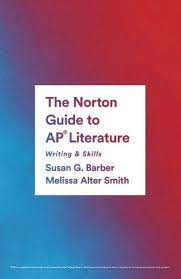What does it mean to be a successful master teacher?
I can remember first hearing someone labeled a master while watching episodes of This Old House with my father when I was a boy. When the credits rolled, Norm Abrams was listed as master carpenter.
It added an aura to his skills akin to Jedi knighthood. But what made him so captivating in my young eyes was his affability; his excellence as a woodworker was cloaked in everyday flannel shirts and an unassuming nonchalance.
This Old House producer/creator Russell Morash stuck that title under Abram’s name to signify someone who was both highly skilled and artistic in his approach to carpentry.
THE DESIGNATION OF MASTER TEACHER
The way in which Norm Abram earned the title speaks to a larger point. In some ways these types of designations are completely arbitrary. There is no governing body to award such status. There are no clear standards. Nor does time equate to mastery.
It is a label bestowed by one individual onto another, which can lead to unequal distribution, or worse, it can become an empty platitude said out of obligation rather than genuine appreciation.
So, if there is no governing body, no standard of achievement, nor time of servitude, why is it even necessary to label someone a master teacher?
It is necessary because it is meaningful.
THE NECESSITY OF MASTER TEACHERS
Teaching is one of the few professions in which your responsibilities on the first day of your career are equal to your responsibilities on the last day. A first-year English teacher will teach the same number of classes with roughly the same number of students on their first day as a 30-year veteran on the last day of their career. And in between the span of those career markers, there is little formal recognition as many great teachers labor in obscurity.
In a profession in which titles rarely change, small recognitions matter.
Michelangelo once said, “If people knew how hard I had to work to gain my mastery, it would not seem so wonderful at all.” The label of a master teacher is an acknowledgment of the toil necessary to achieve that glorious combination of skill, artistry, passion, and effectiveness.
It is a tip of the hat that someone has arrived at or has long gone unnoticed.
THE SUCCESSFUL HABITS
I asked master teachers to share the qualities that they recognize in others that are highly skilled and artistic in their approach to teaching. Here are some of the many habits that master teachers have developed. These are the traits they have internalized and have made intuitive.
I encourage you to tag one teacher that best demonstrates these qualities and share this post with him or her. Validate the work that they do and honor the impact their work has had.
1. They Read Professionally
Master teachers do not teach the same units, the same year, the same way. Ruth Arseneault pointed out that they constantly read research as well as personal accounts of effective classroom practice.
2. They Monitor
Liz Matheny recognizes that they regularly ask for feedback from their students about what’s working and what’s not. Check out 3 Ways of Getting Student Feedback to Improve your Teaching.
3. They Beg, Borrow, And Steal
Jill Massey sees master teachers seek out, glean from, and support other growth-minded teachers. They take the best that others have to offer and infuse themselves into it to create something new and exciting.
4. They Are Perceptive
Jennifer Isgitt believes that master teachers are situationally aware, knowing how to work a room. Not only do they have a sixth sense about where each kid is physically in the classroom and what they are doing, they also have a finger on their mental pulse as well. It reflects a level of classroom management that goes beyond procedures and routines, it exists on the higher plane of mutual understanding between teacher and student.
5. Open-Minded
To be an effective teacher, you should learn to adapt old and new things. Be flexible so that you can go with the flow of the new trends. Accept it if you make mistakes because mistakes guide you to being an effective teacher.
As a teacher, there are going to be times when you will be observed formally or informally (that’s also why you should give 100% at all times). Your boss, teachers, parents, and even your own children always judge and criticize you.
Instead of feeling bitter when somebody has something to say about your teaching, be open-minded when receiving constructive criticism and form a plan of action. Prove that you are the effective teacher that you want to be. Nobody is perfect, and there is always room for improvement. Sometimes, others see what you fail to see.
6. They Are Responsive
As Glenda Funk noted, master teachers do not march students through a curriculum, they tailor the course to the needs of their students. In essence, they don’t teach to a textbook, they teach students. Check out — The Testing Obsession and the Disappearing Curriculum
7. Embraces Change
Teachers should embrace change. There are many modern methods available at this time to help students and teachers stay current and grow. In life, things don’t always go according to plan. This is particularly true when it comes to teaching. Be flexible and go with the flow when change occurs. An effective teacher does not complain about changes when a new principal arrives.
They don’t feel the need to talk about how much better things were at their previous school or with their previous group of kids than they do now. Instead of worrying about change, embrace it wholeheartedly and prove that you can handle any curveball that is thrown your way!
8. They Remain Humble
Dan Sharkovitz admires teachers that approach their work with humility. They seek out nearby mentor teachers willing to enter into continuing conversations.
They seek out advanced degree programs and courses taught by professors working at the cutting edge of our field. All because they stay true to the Socratic paradox of acknowledging the one thing they know is how little they know.
9. Create A Reflection
A skilled educator may readily evaluate their performance and educate themselves about what they find. As they all have them, they can also educate themselves on what they perceive to be their “weaknesses”! An effective teacher will complete their work in a way that prevents work from piling up.
To improve your teaching abilities, there is always more to learn and understand. We all have our “weaknesses,” therefore keep thinking about your job and educating yourself about them! The most crucial component is being able to recognize and address them in order to enhance your teaching abilities.
Although there are many other traits that constitute a good teacher, I think these are the most crucial. These ones can be connected to a variety of other character qualities.
Every circumstance has some redeeming qualities, but it is up to you to identify them. Keep your chin up and smile when you teach for the joy of learning! Effective teachers should always establish a rapport with their students.
10. They Are Interested In Who Their Students Are, Not Just What They Know
Dawn Finley and Chris Heffernan both agreed that master teachers forge authentic relationships and get to know their students on a personal level. And as Heffernan pointed out, it should happen in and out of the classroom.
Master teachers show up to their school events, engage with students in the hallways, and talk to them about their passions and interests in the small windows of opportunity in the classroom.
Again, I encourage you to tag one teacher that best demonstrates these qualities and share this post with him or her. Validate the work that they do and honor the impact their teaching has had.













One comment
Gina
I wholeheartedly agree with all 10! Even though I may not be there yet, it’s a goal to consistently practice these truths.